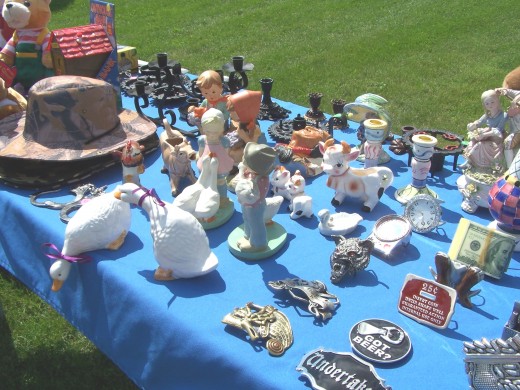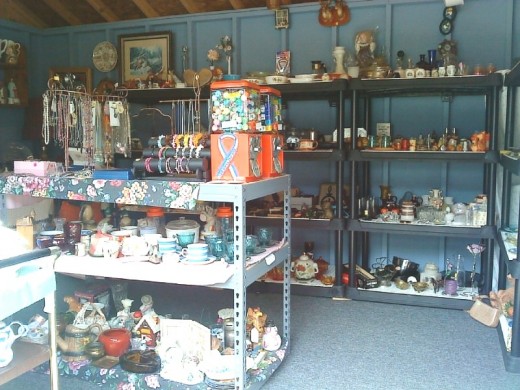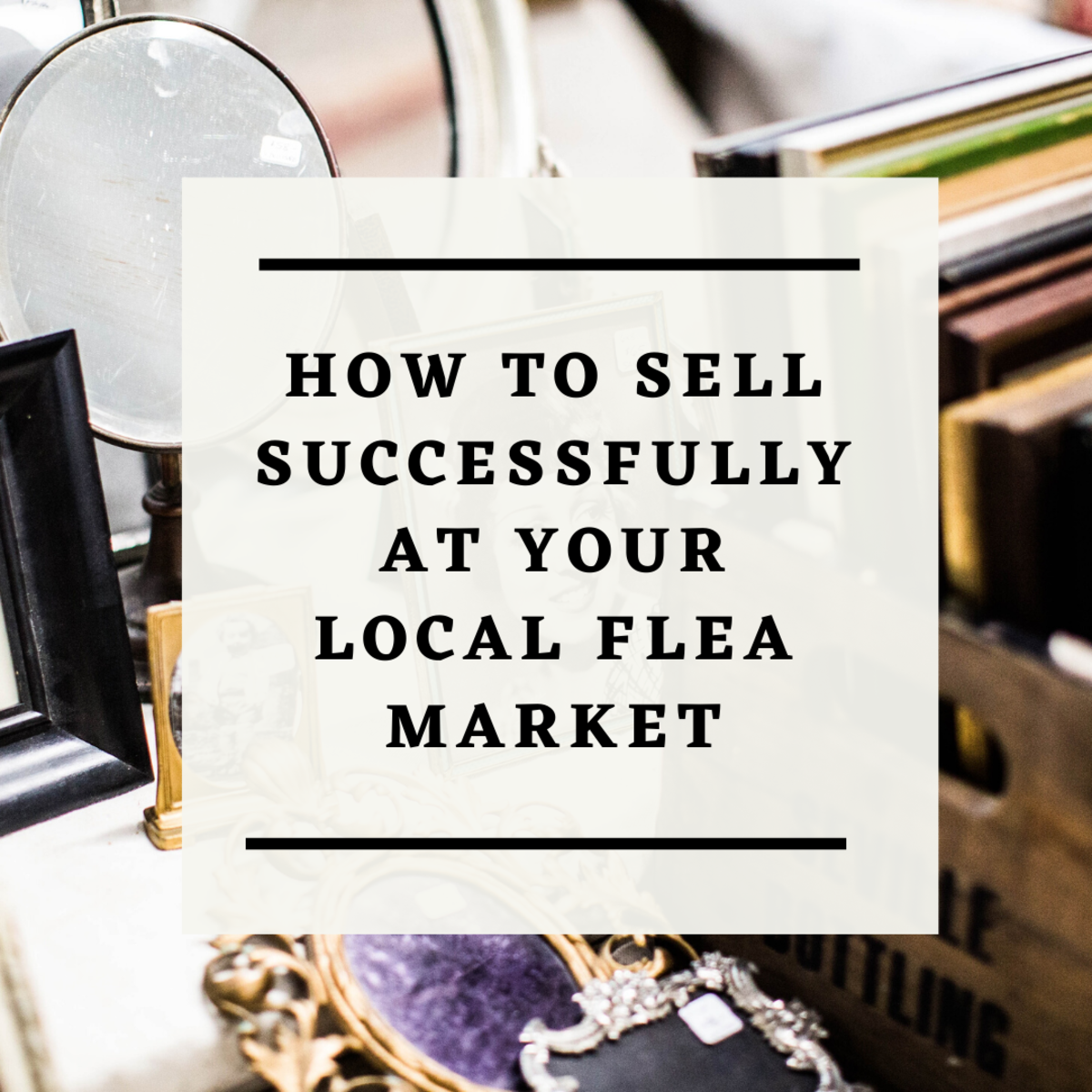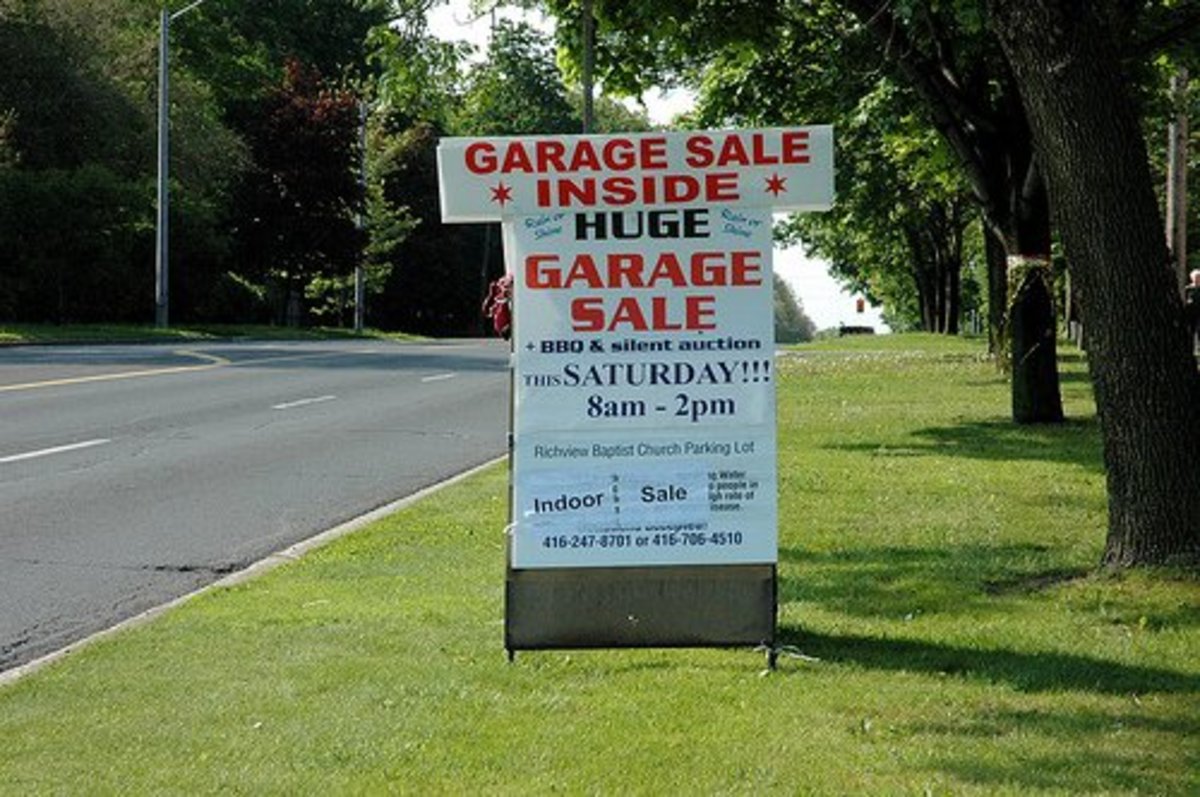Flea Markets and Getting The Best Deals
The Best Deals

Flea marketing can be a lot of fun, and very rewarding. Many valuable antiques were discovered at flea markets for a fraction of the value. Some of the best deals are when you find something you have been searching for to complete a collection, or to connect to a memory from your past. Be careful not to overpay for something that you can get for much less. This hub will attempt to help you get the items you want for the best price.
Here are a few things you need to know before you buy at a flea market. They will be talked about in more detail later on.
- Some vendors are just trying to clean out their basements and will only be around for a short time. This could be to your advantage, but it could also be a way to get ripped off if you are not careful.
- Some vendors are more career oriented and do this for a living. Dealing with a career vendor is sometimes a great way to find items you are looking for because they have more contacts than someone that sets up a stand on rare occasions.
- Priced items vs. un-priced items. How good are your negotiating skills?
- Know a little about the items you are buying, beware of fakes.

Permanent Shed Set-ups and Indoor Flea Markets
Many flea markets are outside with quick setups on tables and tarps on the ground. There are also permanent sheds on site at many flea markets or an indoor setup where vendors rent the spot by the month. An advantage for the vendor is that they have a place that they can keep their items displayed for sale without moving them back and forth from one place to another. The downside is that they have overhead to pay so that cost is passed on in higher prices for the items you buy. That doesn't mean you will overpay but you need to be aware of this so you don't overpay. Do some research on things that you are interested in buying so when you find an item you are educated on the going cost of such items.
One advantage you as the buyer will have by dealing with a vendor at a permanent site is that the vendor is trying to run a business and they have a reputation to keep up so the chances of you being ripped off are a lot less than buying from someone that you may never see again. The difference in the cost that you might pay at a permanent site is insignificant when considering how much the chances of being ripped off are reduced.
Career Flea Market Vendors
There is an advantage of dealing with Career Flea Market Vendors. They get around to many flea markets, sales, auctions, etc and they know people. They know where to get an item and many times they know who they can sell an item to. If you need something and deal with a full time or career flea market vendor, they will help you find items that you need and will most likely give you a great deal on the items if you are a regular customer.
How Much Does It Cost?
So you stopped at a flea market and found an item that you are interested in but you don't see a price on it. Be very careful because unless you are experienced and know the value of that item, you could pay way to much.
Many vendors will not mark prices on their items. This works to their advantage most of the time because they can name their price higher or lower depending on who the buyer is. For example, if you found a perfect lamp that will match your decor in your home and you are very excited over it, the vendor might tell you that it is $25.00. Is that a good deal or not? What you might not know is that the lamp is not that old and it sells new in the store for $20.00. Someone else that might have looked at the same lamp that was not as excited as you might have been told that the price is $8.00. The point is that many vendors will make the price based on the buyer, not based on what the true value is. So you have a choice, do you want to pay $25.00 for the lamp or not? If you know the lamp is currently being sold in stores for $20.00 then why would you buy it for $25.00? That makes no sense. You can walk away or try your negotiating skills. Counter offer to buy the lamp for a much lower price, maybe $10.00 or $12.00 and see if the vendor is willing to come down. Chances are you will not get it for the first offer you make so start low. The vendor will come back with a counter offer. Keep offering a new price that you wish to pay until you can agree somewhere in the middle.
Another way is to offer a price before the vendor throws a price at you. One way to do this is by saying to the vendor, "I noticed there is no price on this, will you take $3.00 for it?" Sometimes you will stump them and they will say ok, or they might say, how about $5.00? That is a good way to get a lower price for items not marked. The key is not to look or act too excited! Also before going right to the item that you want, look at other items first and test the waters on how the vendor is pricing things. One way to do this is by looking at something that you really don't want and ask what the vendor wants for it. Don't offer a price if you don't want it. The idea here is to see how the vendor is going to price the items and also to discourage the vendor when you don't buy that item. Try this with 2 or 3 items. After you get a price from the vendor, say you will give it some thought and move to the next item. After the vendor does not make a sale on 2 or 3 items, he or she will be more inclined to offer a lower price for the item that you really want, like the lamp. Now you can go to the lamp and without looking to interested or excited, pick up the lamp and make your offer by saying I see this isn't priced, will you take $3.00? Since he or she could not get you to buy the other items, the price on the lamp will be close to what you want to buy it for. Have patience and don't look anxious.
If this vendor is just trying to clean out their house and get rid of some things, the prices might be very low, but there is no way of knowing if the lamp works or not and you might not ever see this person again, so you take a chance on buying the lamp.
If you found that same lamp on a table or on a shelf inside a shed with a price already marked on it, then usually that vendor has researched the price and marked the price that they are looking to get for it. Negotiating on the price is not as easy. You can try and offer a lower price but if the vendor agrees to come down at all it will be minimal. This is still ok and you can find very good deals. The one thing that works for you is that the price is the same starting price for everyone. The vendor is not just throwing a price out there at you just because you seem very interested. So the lamp might be marked $8.00. That is much better than being told it is $25.00 because you were over excited. You can still try to get the price lower but don't expect half price. The vendor might come down a dollar or two. Chances are if the prices are already marked, you will get a better deal in the long run and you don' t have to do all of the negotiating dance to get a good price. Most vendors that do not mark the prices will give you a very high price for the item so they have room to come down if you try negotiating, while the vendors that do price the items are more apt to price the item more fairly but will not negotiate near as much. You can get great deals from both vendors but just beware of the game that is played with pricing.

Antiques and Fakes
Sometimes you can find very nice antiques at flea markets and if they are true antiques be prepared to pay more for them. Remember this is a flea market but not a free market. Although you can find some things very cheap at flea markets, there are some things that are great deals, but are still expensive. Know a little about what you are buying. You can buy books on antiques and collectibles, depression glass, toys, etc.. There are also books on flea markets and garage sales. They come out each year to give you an idea of what the prices are on certain items. They are all very informative and can help you a lot to determine if something is a real antique or a fake.








